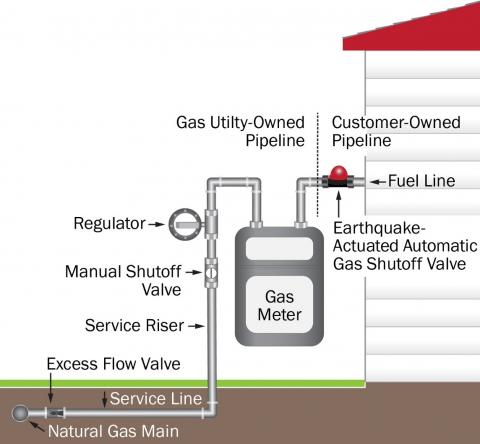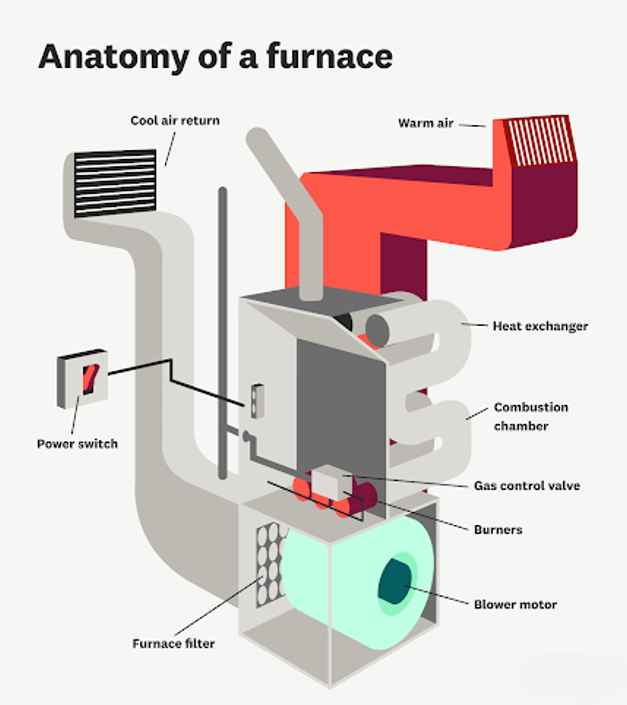
What is a Gas Valve?
A gas valve is a crucial component in any system that utilizes natural gas, propane, or other gaseous fuels. Essentially, it's a device that controls the flow of gas. Think of it as a gatekeeper, regulating when and how much gas is allowed to pass through a pipeline or appliance. These valves are found in a wide range of applications, from your home's furnace and water heater to industrial settings and even vehicles.
Their primary function is to ensure safe and efficient gas delivery. Without a properly functioning gas valve, you could experience leaks, inconsistent appliance performance, or even dangerous situations. Therefore, understanding the basics of these valves is essential for any homeowner or anyone working with gas-powered equipment.
Types of Gas Valves
There are several types of gas valves, each designed for specific purposes and applications. Here are a few common types:
- Manual Gas Valves: These are simple valves that are operated by hand. They often have a lever or knob that you turn to open or close the gas flow.
- Solenoid Gas Valves: These valves use an electromagnet to control the gas flow. When an electrical current is applied, the valve opens; when the current is removed, it closes. They are commonly found in appliances that require precise and automated gas control.
- Thermocouple Gas Valves: These valves are designed to shut off the gas supply if the pilot light goes out. They rely on a thermocouple, a temperature-sensitive device, to detect the presence of a flame.
- Pressure Regulator Valves: These valves maintain a constant gas pressure, ensuring that appliances receive the correct amount of fuel. They are crucial for consistent and efficient appliance performance.
Knowing the type of gas valve in your appliance or system is important for proper maintenance and troubleshooting.
Importance of Gas Valve Maintenance

Regular maintenance of gas valves is essential for safety and efficiency. A faulty valve can lead to gas leaks, which are hazardous and can cause explosions or fires. Here are some key maintenance tips:
- Regular Inspections: Check for any signs of damage, corrosion, or leaks. You can use a soapy water solution to detect leaks – if bubbles form, there's a leak.
- Cleaning: Keep the valve clean and free from debris. Dust and dirt can interfere with the valve's operation.
- Professional Servicing: Have a qualified technician inspect and service your gas valves regularly, especially if you notice any issues.
- Replacement: If a valve is damaged or malfunctioning, replace it immediately. Never attempt to repair a faulty gas valve yourself unless you are a qualified professional.
Remember, safety should always be your top priority when dealing with gas appliances and gas valves.
Safety Tips for Handling Gas Valves
Working with gas valves requires caution and attention to safety. Here are some essential safety tips:
- Know Your Valves: Familiarize yourself with the location and operation of the gas valves in your home.
- Use Proper Tools: Always use the correct tools when working with gas valves. Never force a valve open or closed.
- Ventilation: Ensure proper ventilation when working with gas appliances.
- Smell Gas? Act Immediately: If you smell gas, immediately evacuate the area, and call your gas company or emergency services. Do not turn on any lights or use any electrical devices.
- Professional Help: If you are unsure about any aspect of gas valve maintenance or repair, always seek professional help.

By following these safety tips, you can help prevent accidents and ensure the safe operation of your gas systems.
Troubleshooting Common Gas Valve Issues
Even with proper maintenance, gas valves can sometimes experience problems. Here are a few common issues and how to address them:
- Stuck Valve: If a valve is stuck, do not force it. Apply a penetrating lubricant and gently try to loosen it. If it remains stuck, call a professional.
- Leaking Valve: A leaking valve is a serious safety hazard. Turn off the gas supply and call a technician immediately.
- Pilot Light Issues: If your pilot light won't stay lit, the thermocouple or gas valve may be faulty. Check the thermocouple first, and if the problem persists, contact a professional.
- Inconsistent Flame: An inconsistent flame can indicate a problem with the pressure regulator or gas valve. Have it inspected by a qualified technician.
Choosing the Right Gas Valve

Selecting the right gas valve for your application is crucial for safety and performance. Consider the following factors:
- Type of Gas: Ensure the valve is compatible with the type of gas you are using (natural gas, propane, etc.).
- Pressure Rating: Choose a valve with the appropriate pressure rating for your system.
- Size and Connection: Select a valve with the correct size and connection type for your pipeline or appliance.
- Application: Consider the specific application and choose a valve designed for that purpose.
- Quality and Certification: Opt for high-quality valves from reputable manufacturers that are certified to meet safety standards.
Conclusion
Gas valves are essential components that play a critical role in the safe and efficient operation of gas systems. Understanding their function, types, maintenance, and safety requirements is crucial for homeowners and professionals alike. By following the tips and guidelines outlined in this guide, you can ensure the safe and reliable operation of your gas valves.
No comments:
Post a Comment
Note: Only a member of this blog may post a comment.